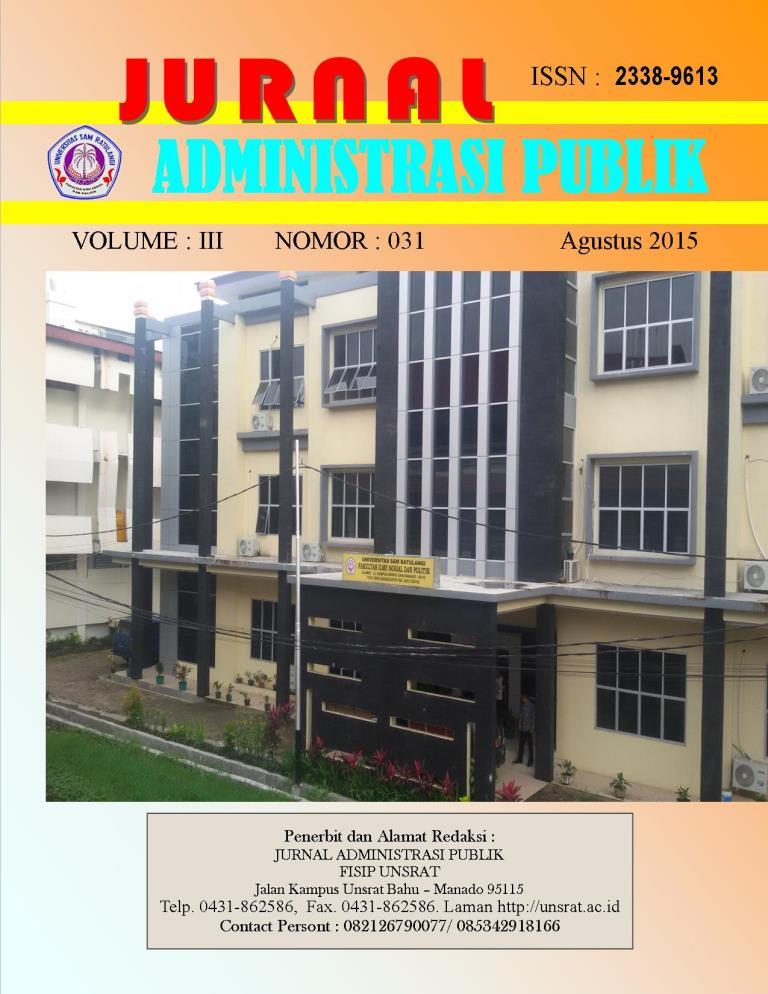PENGARUH MOTIVASI TERHADAP KINERJA PEGAWAI (Studi Pada Kantor Kecamatan Ratahan Kabupaten Minahasa Tenggara)
Abstract
Southeast Minahasa Regency is the Effect of Motivation on Employee Performance is still notcontributed optimally. Factors that affect employee motivation, among others, job satisfaction
and the amount recived by an employee kompensasi. To do a job, the employee should have a
high performance. Therefore, it is necessary to effect a good motivation in order to improve the
performance of the employees.
Motivation is the driving goal, the real goal being the main driving force for a person to
attempt to obtain or achieve what he wanted either positive or negative. Performance is the result
of the quality and quantity of work achieved by a person in performing its functions in
accordance with the responsibilities given to the employees. The purpose of this study was to
determine the motivation is there any influence on the performance of employees at the District
Office Ratahan Southeast Minahasa Regency.
In this study, the method used is quantitative analysis method. While data analysis
technique used is the technique of correlation between variables to prove the effect of motivation
on employee performance. Based on the results of research conducted and followed by analyzing
the data obtained, then the result is that there is a strong relationship between the effect of
motivation on employee performance for 0.665%, this means working hypothesis acceptable
alternative. The result were obtained coefficient determinant of the remaining 44.22%, 55.78%
more influenced by other factors not included in this study.
Keywords: Effect Of Motivation
Downloads
Published
2015-08-04
How to Cite
Kapahang, F. F., Rorong, A. J., & Tampi, G. B. (2015). PENGARUH MOTIVASI TERHADAP KINERJA PEGAWAI (Studi Pada Kantor Kecamatan Ratahan Kabupaten Minahasa Tenggara). JURNAL ADMINISTRASI PUBLIK, 3(031). Retrieved from https://ejournal.unsrat.ac.id/v3/index.php/JAP/article/view/8740
Issue
Section
artikel








